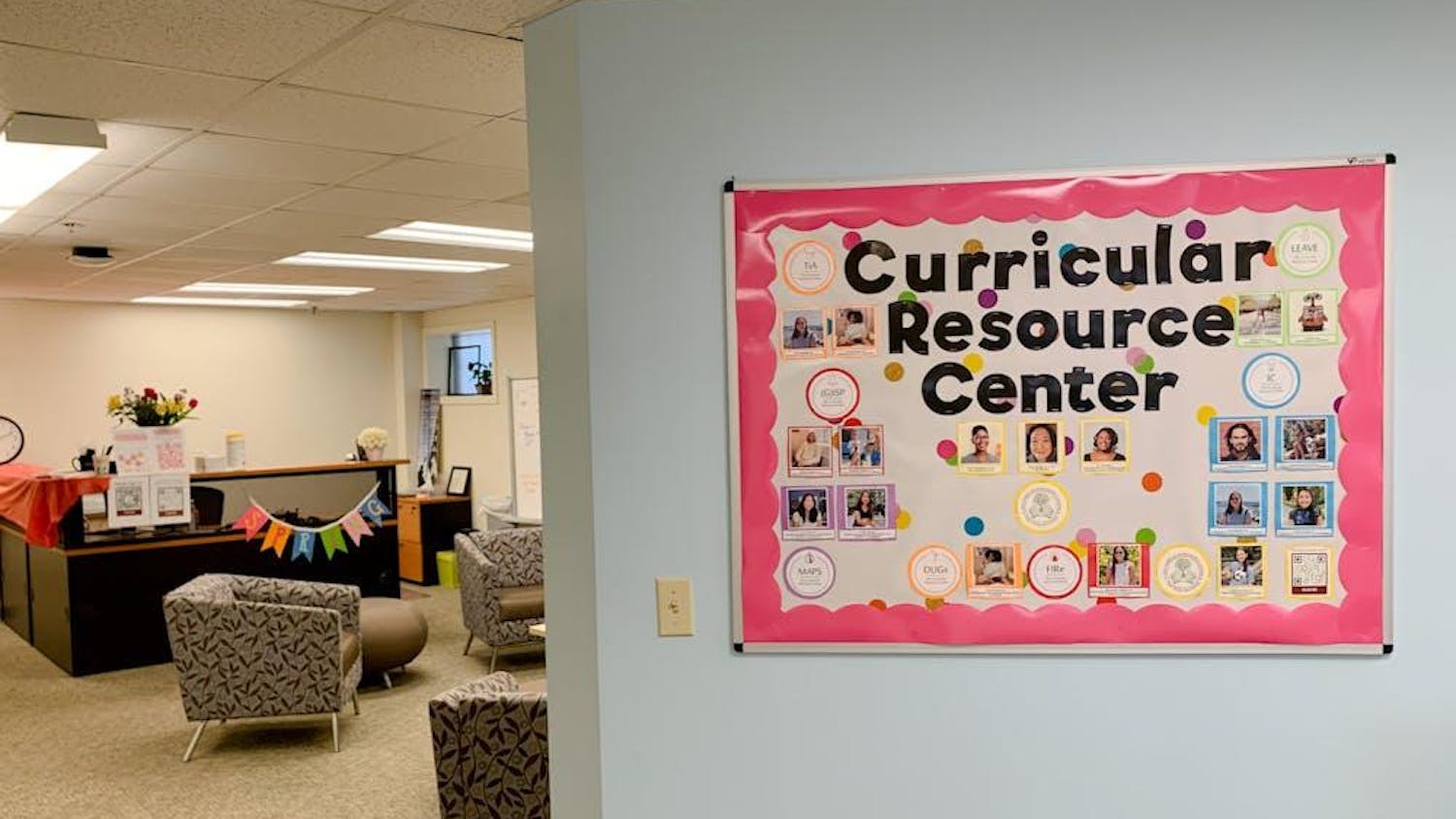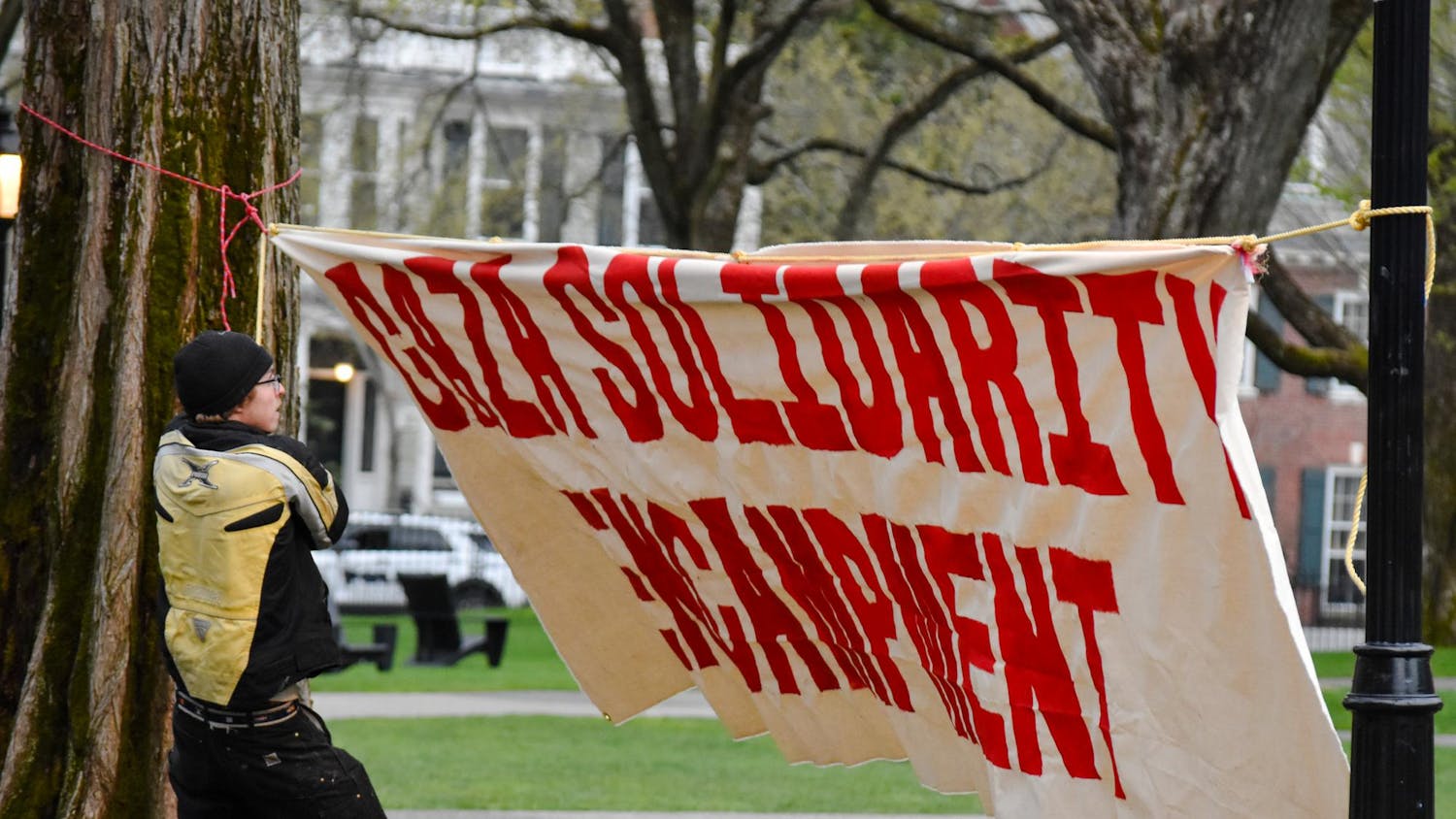Tensions rose on campus last week when a non-Brown-affiliated, pro-Israel group allegedly harassed students outside the Stephen Robert ’62 Campus Center. On the morning of April 11, Students Supporting Israel set up a table with posters and handouts on the corner of Brown and Waterman Streets to advance their views on the Israel-Palestine conflict, but several students with diverse views on the conflict took issue with the messages being advertised.
Some students asked the group to leave, and around 15 others established an impromptu sit-in near SSI’s table, said Ethan Shire ’19, a member of Brown Students for Israel. Shire and SSI president Ilan Sinelnikov reported that the conversation became heated at approximately 12 p.m., with many raised voices.
A Muslim student who wears a hijab and asked to remain anonymous wrote she was called a “terrorist” by SSI members.
Sinelnikov denied that SSI members called a student a terrorist. “Completely not possible,” he said.
SSI’s table also featured a sign that read “Iran, Hezbollah, Hamas,” wrote a member of Students for Justice in Palestine who asked to remain anonymous for fear of personal repercussions in a message to The Herald. She said she was “honestly very disturbed and petrified seeing them with their booth and signs” and disheartened to see that SSI was receiving some student support from passersby.
In an op-ed published in The Herald, Shire and former BSI president Benjamin Gladstone ’18 condemned SSI’s factually inaccurate and simplistic messaging, as well as its “provocative” tactics. “It is very important to us to never generalize about Palestinians, Muslims, Arabs or any other national, ethnic, religious or racial group,” they wrote.
Sinelnikov said that he and his team of two other SSI members were touring Ivy League universities to hold conversations with students about the Israel-Palestine conflict, film their reactions and gauge their opinions. According to their website, SSI is an “international campus movement that supports the State of Israel,” and their mission is to “be a clear and confident Pro-Israel voice on college campuses, and to support students in grassroots Pro-Israel advocacy.” The University does not have an SSI chapter.
Brown students allegedly “got very aggressive and started shouting and screaming. They were not willing to hold a conversation with me or sit down with me,” Sinelnikov said. “Brown was the most hostile of all the schools we visited,” he added.
Sinelnikov sought to “truly engage with students” and respected their wishes if they chose to not be filmed, he said.
The student from SJP contested Sinelnikov’s claim that SSI members stopped filming when asked to do so. On the contrary, cameras were thrust in students’ faces, she said. She is worried that the footage will be used to support the “accusation that Palestenians or people who support Palestine are angry without reason.”
“At Brown, there are a lot of different organizations and professors that have a lot of discussions on Israel and Palestine, and they are nuanced,” she said, adding that in contrast, SSI engaged in “hate speech.”
In their op-ed, Gladstone and Shire wrote that “as much as outside and national groups can, and regularly do, participate in the conversation about Israel and Palestine on Brown’s campus, such groups ought to do so with the permission and facilitation of Brown students or members of the faculty.”
SSI members did not contact BSI or any campus officials prior to setting up their table because they chose a public street owned by Providence as the location, Sinelnikov said. SSI did not partner with existing pro-Israel groups at the University because its intention was not to begin a chapter but to assess campus opinion, he added.
Brown should “not restrict off-campus groups from advocating for their causes on campus,” Shire said, though he added that “students should be aware of whether groups are affiliated with Brown or not.”
“This was a clear effort on the part of the organizers to harass and threaten Palestinian students and all those who stand in solidarity with the Palestinian people. Such efforts must be condemned by the University, as it is unacceptable for any student to feel threatened on campus,” wrote a second member of SJP, who also asked to remain anonymous, in an email to The Herald. “As a Palestinian student, I felt unsafe by this demonstration of racism and hatred on my campus.”
The Office of Campus Life and Student Services and the Department of Public Safety were not alerted or made aware of the rising tensions on campus, said Director of News and Editorial Development Brian Clark. If DPS had been alerted to a student concern, officers would have responded immediately, he added.
However, because the street SSI was on is city-owned, the actions DPS could have taken would have been limited and depended on how the officers perceived the situation, Clark said.
The University limits use of on-campus spaces to student groups or University departments, Clark said. Non-Brown groups can use campus spaces after filing an application with the Scheduling Office, but this avenue is not available for business or political activities, he added.
“The reality is the sidewalk on Waterman Street is not Brown property. When there are groups or individuals or media on that street, they do not need permission” from the University, Clark said.




